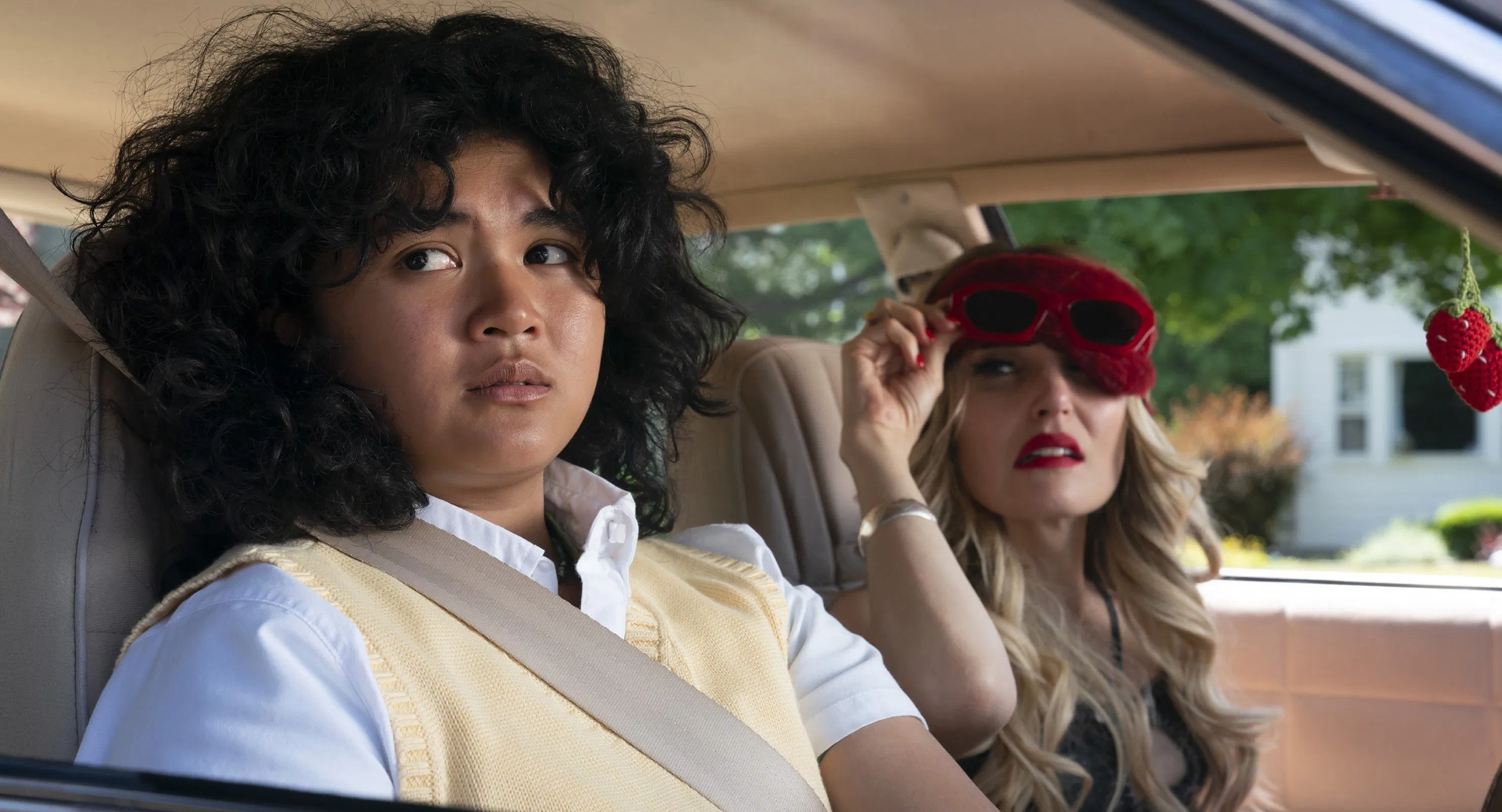Summer of 69 – Film Review
Published May 12, 2025

In her directorial debut Summer of 69, Jillian Bell aims to create a raunchy yet heartfelt comedy about growing up, sexual identity, and female friendship—but in trying to juggle all of its themes, tones, and character arcs, the film often loses its balance. A mix of mismatched comic sensibilities and surprisingly sincere moments, the film is elevated at times by its leads, especially Chloe Fineman and Sam Morelos, but ultimately suffers from tonal inconsistency and underbaked writing. Despite flashes of inspiration, it ends up feeling more like a sketch comedy idea stretched to feature length than a fully cohesive story.
Set in suburban California, the film follows socially awkward high schooler Abby Flores (Sam Morelos) who is determined to finally make a move on her longtime crush Max (Matt Cornett) after hearing he’s newly single and allegedly obsessed with the 69 position. What unfolds is a coming-of-age comedy that leans heavily on sexual humor and absurd hijinks but tries to root itself in a sincere female friendship—between Abby and a stripper named Santa Monica (Chloe Fineman)—that becomes the emotional center of the film.
Jillian Bell, known for her comedic roles in Workaholics and Brittany Runs a Marathon just to name a few, brings a certain offbeat charm to the film’s direction, allowing for zany situations and exaggerated performances. But what works in sketch or short-form content doesn’t always translate seamlessly to feature-length storytelling, and Bell seems unsure at times whether she’s directing a teen sex farce, a heartwarming mentor-mentee story, or a satirical critique of adult hypocrisy. The film tries to be all of those at once, and while that ambition is admirable, the execution often falters.
The core relationship between Abby and Santa Monica is the film’s saving grace. Morelos is engaging and awkward in all the right ways, capturing the painful earnestness of adolescence with an unforced sincerity. Fineman, best known for her work on Saturday Night Live, plays against type here, grounding the flamboyant stripper character with vulnerability and warmth. Their chemistry is believable and frequently touching, even as they navigate through a plot that’s increasingly chaotic and implausible.
Unfortunately, the rest of the film doesn’t always support them. Much of the humor feels broad and occasionally forced, especially in scenes involving the cartoonishly villainous Rick Richards (played with gusto by Charlie Day, whose over-the-top performance feels imported from another movie entirely). Likewise, moments meant to be tender—such as Santa Monica’s insecurities about her past or Abby’s confusion about her own sexuality—are often undercut by abrupt tonal shifts, crude gags, or rushed resolutions.
There are glimpses of sharp satire, particularly in the way the film critiques the sexual double standards faced by teenage girls and the judgment women encounter for embracing their bodies and sexuality. The strip club, Diamond Dolls, is portrayed not as a den of sleaze but as a surrogate family for its workers, which gives the story a feminist edge that feels refreshing. However, this perspective is never fully developed beyond a surface-level acknowledgment, and the screenplay—by Bell, Liz Nico, and Jules Byrne—often leans on clichés instead of carving out a more distinct or bold narrative path.
Supporting performances are a mixed bag. Natalie Morales adds a grounded, likable presence as Santa Monica’s old classmate Robin, but her role feels underutilized. Matt Cornett plays Max with a decent mix of sensitivity and teen awkwardness, though his character is more plot device than fully realized individual. Abby’s parents, who are largely absent from the story, are written so vaguely that when they return in the final scene, their reaction barely registers. The emotional payoff the film is aiming for lands with a soft thud rather than a punch.
One of the film’s more frustrating aspects is how it uses streaming and social media as plot elements without ever meaningfully engaging with them. Abby’s status as a successful gaming streamer is central to the story’s financial stakes, yet we never see how her persona functions online or how that relates to her struggle with confidence offline. Likewise, the film teases themes of internet fame, voyeurism, and performance, but only in the shallowest terms, missing a rich opportunity for commentary.
Summer of 69 isn’t a complete misfire. It has moments of genuine sweetness and scattered laughs, and its core message—about embracing one’s awkwardness, accepting who you are, and finding your tribe—is worthwhile. Bell shows flashes of promise behind the camera, especially in the film’s quieter, character-driven scenes. But the movie is too tonally uneven, too reliant on tired tropes, and too unwilling to fully commit to either its raunch or its heart to truly succeed.
For a film with such a bold title and premise, Summer of 69 feels surprisingly safe and familiar. It gestures toward edginess but rarely delivers on it in a way that feels earned. It aims for empowerment but doesn’t always trust its characters enough to carry that message through. It wants to be a female-driven Superbad with a splash of Magic Mike, but ends up more like a confused mashup of teen rom-com and adult-themed sketch comedy.
In the end, Summer of 69 is a passable but frustratingly uneven effort—a film that has potential but doesn’t quite know how to capitalize on it. Its strong lead performances and flashes of emotional depth are undermined by a scattershot script and muddled tone. With a tighter screenplay and a clearer sense of identity, Jillian Bell’s debut could have left a stronger mark. As it stands, it’s an awkward, sometimes charming, but ultimately forgettable summer fling of a movie.
